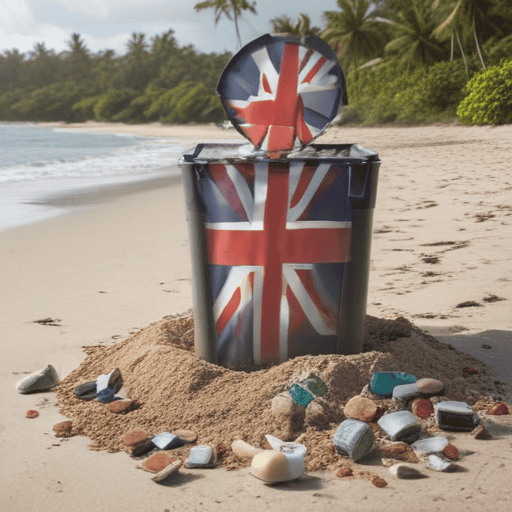The persistent issue of littering in Fiji has been attributed to changing attitudes and habits over the years, as highlighted by former Speaker of the House of Representatives, Pita Nacuva. Reflecting on his tenure as the first Director of Town and Country Planning from 1975 to 1987, he noted a stark contrast between the past and present behavior concerning waste disposal. In earlier years, Nacuva observed that people were generally more conscientious about disposing of waste appropriately, unlike the current trend of careless littering, even in public spaces.
Nacuva emphasized that the problem is not due to a lack of waste disposal options, as rubbish bins are available in many areas. Instead, he pointed to a “habit” that has developed among some Fijians, where there is a notable disregard for cleanliness. This behavior has led to increasing complaints from residents in areas like Pacific Harbour, who are now facing the consequences of litter left behind by visitors.
For the Pacific Harbour community, the outlook has shifted from seeking land for recreational purposes to a pressing demand for action against the irresponsible use of public spaces, particularly beaches where trash accumulates. Nacuva stresses the need for heightened awareness among residents regarding their environmental responsibilities, urging individuals to recognize the impact of their actions on public health and the natural beauty that defines Fiji.
Similar sentiments have been echoed by community members and government officials alike. The Justice Minister, Siromi Turaga, has underscored that waste management issues necessitate a joint effort among families, communities, and local government. Calls are intensifying for enhanced educational initiatives to encourage proper waste disposal practices from a young age, fostering a culture of environmental stewardship.
While the challenges of waste management may seem daunting, there is significant potential for positive change. By cultivating a sense of civic pride and personal responsibility, the people of Fiji can work together to create a cleaner, more sustainable environment for both residents and future visitors. Collaborative efforts aimed at raising public awareness and improving sanitation practices can collectively safeguard Fiji’s natural heritage and ensure its beauty for generations to come.
In summary, the article sheds light on the changing landscape of waste disposal in Fiji, emphasizing the need for awareness and responsibility as vital components of fostering a cleaner community. The hopeful message is clear: through collaboration and proactive community engagement, Fiji can address these pressing issues and enhance its reputation as a pristine destination.

Leave a comment